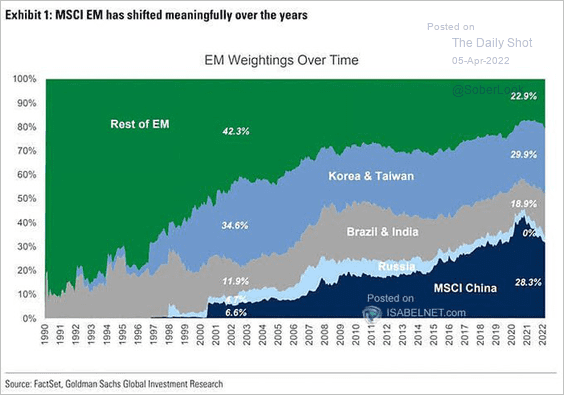Federal Open Market Committee (FOMC) members are telegraphing an increasingly hawkish approach to monetary policy in the near future, and the bond markets have reacted accordingly. Mortgage rates have risen in tune and coupled with higher house prices, the average mortgage payment for a new buyer has risen by over 30% year over year. In response to supply chain issues companies have increased inventories. Used car prices, a major source of inflation over the past year, have peaked for now. The top companies in the S&P 500 continue to command a premium valuation. Not your father’s emerging markets.
1. Short-term rates are quickly reflecting a more aggressive Federal Reserve:
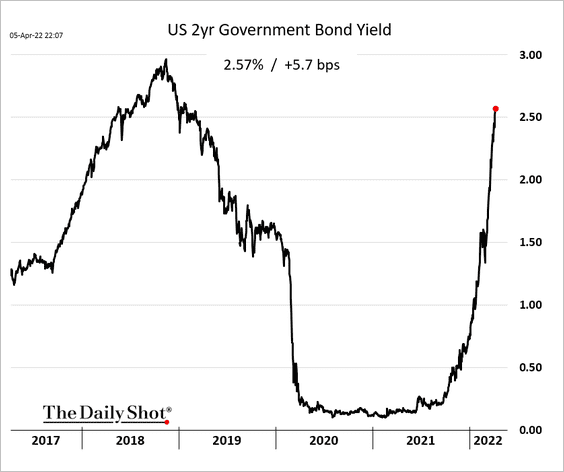
Source: The Daily Shot from 4/5/22
2. The low supply of homes for sale is keeping the market highly competitive:
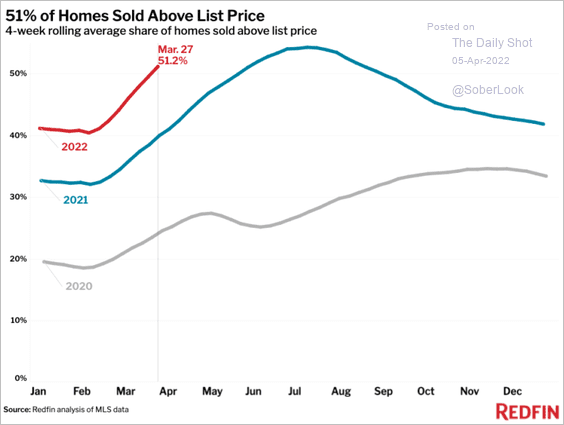
Source: Redfin
3. But it’s only a matter of time before affordability takes a toll:
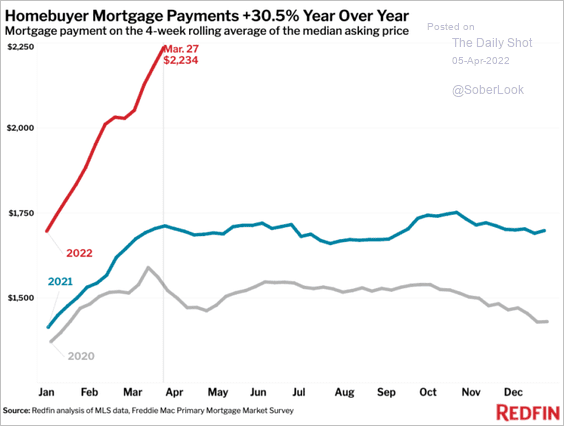
Source: Redfin
4. Higher inventories may shift the balance of supply and demand, especially if the Federal Reserve successfully tempers the latter:
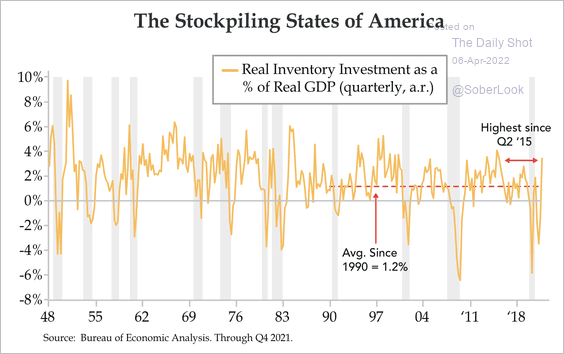
Source: Quill Intelligence
5. If supply chain issues are resolved, prices of used vehicles should continue to decrease:
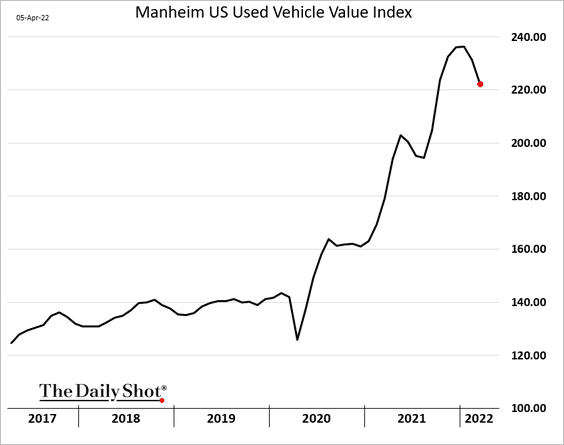
Source: The Daily Shot from 4/5/22
6. Average valuations are reasonable in U.S. markets if forward earnings meet estimates:
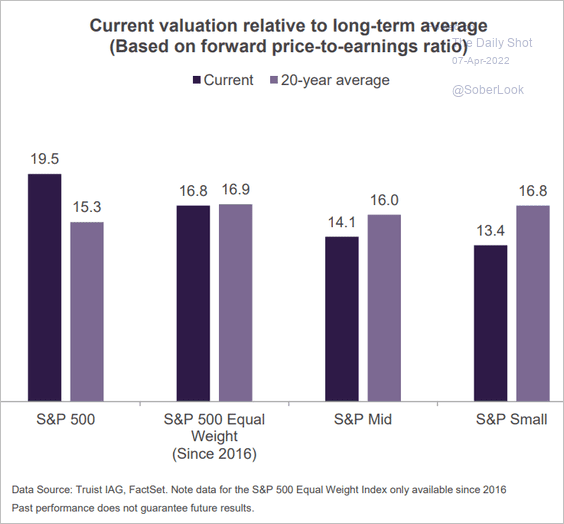
Source: Truist Advisory Services
7. The composition of the emerging markets index has changed materially over the past 20 years with China rising from ~7% of the index in 2002 to ~28% currently:









